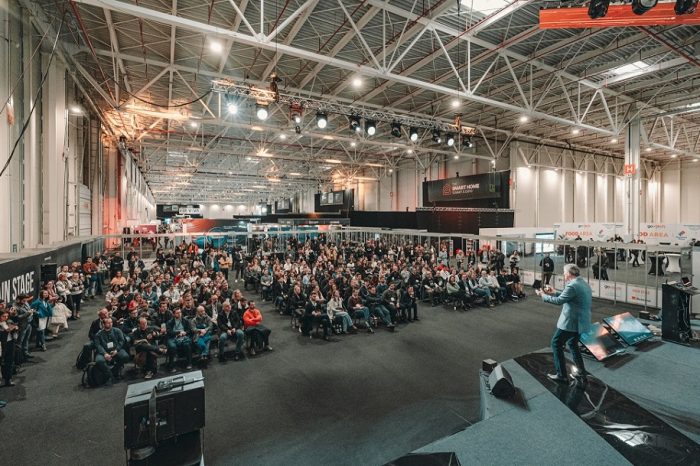Horváth: Innovative work organization methods increase employee motivation by up to 75%

- The adoption of “New Work” type measures, which stimulate autonomy and flexibility within teams, leads to increased commitment and productivity.
- Horváth’s Future of Work 2024 study highlights the benefits of these modern approaches to organizing work, suggesting employers place greater emphasis on building trust rather than expanding control.
Excessive monitoring of employees and the imposition of office attendance are counterproductive in the attempt to increase work productivity, but innovative approaches to the organization of work – brought together under the concept of “New Work” – increase employee motivation by up to 75% and performance by 50%.
These are some of the main conclusions of the “The Future of Work” study, carried out in 2024 by Horváth, a global management consulting company, active on the Romanian market since 2005. In a competitive and constantly changing global context, the efficiency and motivation of employees become essential for the long-term success of companies, which can achieve sustainable productivity growth if they emphasize autonomy, trust and collaboration.
Among the key measures analyzed in the study, those focused on employee mindset were found to be a key driver of motivation and performance. For example, self-organized work (Self-organized work) is promoted in 79% of the responding companies, and within them employees are stimulated to take responsibility for their own results.
Arising “out of necessity”, in the context of the Covid-19 pandemic, flexibility in the organization of work tends to become permanent, and it has become equally important to support employees in identifying a purpose in their work (Purpose of Work), this being a aspect that concerns 74% of companies. If they are aware of the purpose of their work, more than 70% of employees feel more motivated. Regarding organizational culture, the study points out that providing a company with a vision of its mission and well-defined role models increases employee motivation and engagement.
Once they are known, the basic values of a company (Core values) become important in the daily activity for 89% of employees. According to Horváth’s analysis, it appears that digital collaboration platforms and agile methodologies are considered by respondents to have a favorable impact on employee motivation, but must be adapted to the needs of each organization and supported by clear communication. e corporate strategy and to continuously develop them further.
Another notable trend is the adoption of the concept of “T-Shaped People”, which defines professionals with a wide range of general skills but with deep expertise in a specific area. These employees are essential to improving team performance through flexibility and effective collaboration.
Change leadership stands out in the study for its positive impact on performance and motivation, in contrast to distributed leadership roles, which have unclear effects on team outcomes. Regulations for home work and activity-based working (Activity-based working) are important factors in increasing motivation and performance, providing the necessary flexibility for a balance between professional and personal life.
“Remote work, most often from home, has become more and more widespread in recent years, but it has a double effect: on the one hand, it increases productivity, and on the other, it becomes a barrier to motivation. Companies around the world are looking to solve this dilemma, and our research has shown that excessive employee monitoring and office attendance are counterproductive and can negatively impact innovation and long-term employee performance. Instead, New Work type measures, implemented correctly, promote trust, responsibility and collaboration, becoming a sustainable way to increase performance and develop the company”, believes Maria Boldor, Partner and Managing Director, Horváth Romania.
Horváth’s study “The Future of Work”, 2024, includes experiences from recent projects and the results of a survey of more than 50 HR experts, from more than 10 industries, more than half of them occupying management positions.
















